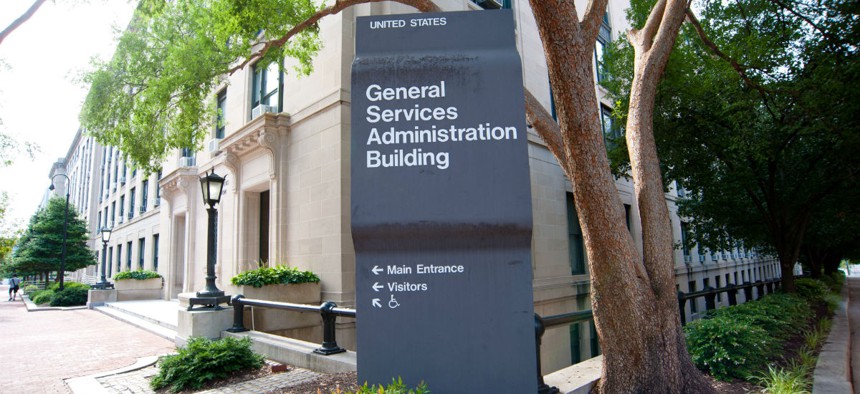Protests Against 18F’s Agile Development Deal Resolved -- But Next Steps Still Unclear

Rena Schild/Shutterstock.com
Introduced as a way to speed up the technology buying process, the BPA's implementation has been sluggish.
A list of tech vendors authorized to sell digital services directly to the government is now live, though the companies on that list are still in the dark about when they'll start getting customers.
Since September, the General Services Administration had halted operations on the Agile Blanket Purchase Agreement — a pre-approved batch of 16 tech companies specializing in so-called "agile" development — because at least two companies had filed protests with GSA. Last week, GSA's tech team 18F announced the last of the protests had been resolved, and that it had awarded a 17th company, InQbation Labs Inc., a spot on the list.
According to an 18F blog post in January, the team's ultimate goal was to reduce contract timelines to "less than four weeks from solicitation to contract kickoff, and . . . no more than three months to deliver a minimum viable product."
Though it was introduced as a way to speed up the technology buying process, implementation of the BPA has been sluggish.
The deadline for the BPA, which invited vendors to apply with price quotes in June, had been pushed back several times. Court documents related to two of the protests, filed over the past few months, show companies frustrated with GSA and 18F's selection process. (Competing companies were required to demonstrate agile development skills by building software prototypes from public data sets, all while coding in a public repository. GSA unveiled the BPA, and 16 winning companies, in August).
GSA declined multiple requests for comment or more detail on the protests. A press officer insisted court documents for the protests were public, but ignored requests for specific details on any of the cases. An executive from one vendor on the list, who asked not to be named, told Nextgov that GSA has not responded to their requests for information about next steps either.
In September, McLean, Virginia-based Octo Consulting filed a complaint in the U.S. Court of Federal Claims after employees learned the company had not been awarded a spot on the BPA.
According to Octo, the company's submission was given an "exceptional rating," but at at a price that was $1,600 higher than the closest awardee. (Public documents show that the court determined Octo Consulting did not have standing because the company couldn't show it had a "substantial chance" of winning the contract and denied the company's protest.
Octo Consulting CEO Mehul Sanghani told Nextgov that employees had spent months training and preparing to apply.
"We were understandably very disappointed," he said. Octo's protest was "driven by the desire to understand as much as we could about the evaluation process and ensure that we could more effectively respond to future requirements. Unfortunately . . . today's procurement, acquisition, contract environment really doesn't lend itself to getting constructive feedback."
Despite failing to secure a spot on the BPA, Sanghani noted the National Geospatial-Intelligence Agency's IT Services Directorate had awarded Octo Consulting a $34 million "price-per-sprint" contract, meaning the agency plans to pay Octo for units of development capacity, instead of for fixed technological requirements.
Sanghani said he thinks it's a sign the company can still get contracts for agile services.
"I don't know if [being on the BPA] would have changed anything," he said.
Emails obtained by Nextgov show that GSA told BPA awardees that Guident Technologies, part of tech contractor CRGT, also filed a protest with the Court of Federal Claims in October. Public court documents show Guident claimed GSA denied its offer because it didn't submit one particular checklist, though it received an automatic message to suggest the application was complete. (Court documents also indicate the case was voluntarily dismissed. Nextgov has requested comment from Guident.)
David Hollenbach, president and CEO of DSoft, one of the BPA awardees, wrote in an email to Nextgov that his company had hoped to already have some task orders from the federal government.
"[W]e were disappointed by the protest and resultant delays but that’s a common issue in today’s government contracting," he wrote. "It is one reason we have a strong focus on working with commercial clients as well."
Hollenbach said DSoft hasn't heard anything from GSA since the announcement that protests had been resolved.
GSA blog posts indicate it will be soliciting offers from designers and developers in the coming weeks. This first applicant group, called Pool 3, is for full-stack designers and developers.
"Now that the protest litigation on the Agile BPA Pool 3 has concluded, GSA looks forward to providing cutting-edge agile development services to agencies across government through this BPA," a GSA spokesperson said in a statement to Nextgov.
(Image via Rena Schild/Shutterstock.com)





